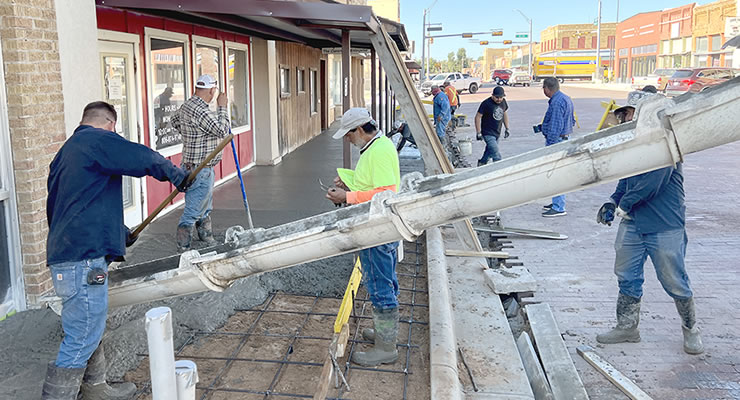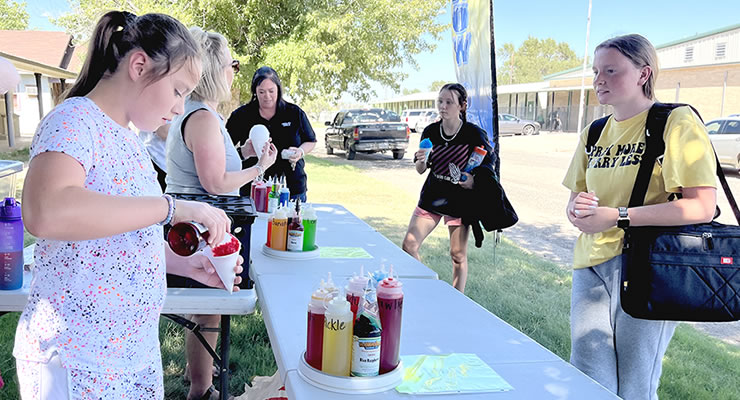Sales tax funds could be used to support emergency services in Donley County under a system of County Assistance Districts currently being discussed by local officials.
Donley County Judge John Howard presented information on the subject at the Clarendon Lions Club meeting Tuesday at noon and said the idea would present an equitable way of helping fund law enforcement as possibly other emergency services.
Currently the Donley County Sheriff’s Office is funded primarily by the county, which derives about half of its operating income from property taxes, Howard said. Fifteen percent of the sheriff’s budget in the coming fiscal year will be paid through a contract agreement with the City of Clarendon in the amount of $140,000.
Clarendon’s support of the sheriff’s office by contract dates back to 1981 when the city dissolved its municipal police department resulting in local law enforcement resources and responsibilities being concentrated at the county level.
Howard said the city’s contract cost increased over the years and was scheduled to be about $168,000 this year, but the city determined it could not continue with the three percent annual increases that had been adopted a few years ago.
The city’s trouble, City Administrator David Dockery said, is related to recent changes the state legislature made to how local governments levy property taxes.
“The state has totally changed how we can assess property tax,” Dockery told the Lions Club. “All local governments have been extremely limited in this regard.”
Local governments used to be able to raise property tax rates by up to eight percent before triggering a possible rollback election by voters. The Legislature has pushed that limit down to about 3.5 percent, and the formulas for calculating property tax rates have become more complex. If the county property tax rate went up one penny, it generates about $35,000 for the county, Howard said, which is not enough to fund a single sheriff’s deputy salary, much less the entire cost of the position.
County Assistance Districts would have the ability to levy sales taxes for the emergency services, provide a more equitable income source, and offer predictability for future planning. County Assistance Districts funds could be spent on law enforcement, fire departments, jails, economic development, and libraries, Howard said.
Howard said the idea would be to create four County Assistance Districts – one for the county that excludes the incorporated areas of Clarendon, Hedley, and Howardwick, and one in each of those cities. All four districts would have to be approved by local voters, and all four would be governed by a board comprised of the county commissioners.
Local sales tax rates cannot exceed 2.0 percent. There is currently no local sales tax in the unincorporated areas of the county, Hedley’s sales tax is 1.0 percent, and Howardwick’s sales tax is 1.25 percent. Those communities could determine what additional sales tax to set if any, but Clarendon, which already maxed out at 2.0 percent would have to give up part of its sales tax to a County Assistance District.
Currently, Clarendon officials are talking about giving up 0.625 percentage points to the proposed assistance district, the amount that would generate about $140,000 currently provided by Clarendon to the sheriff’s department.
Howard said he has not yet discussed the assistance district plan with Hedley or Howardwick officials but plans to do so soon.










Reader Comments